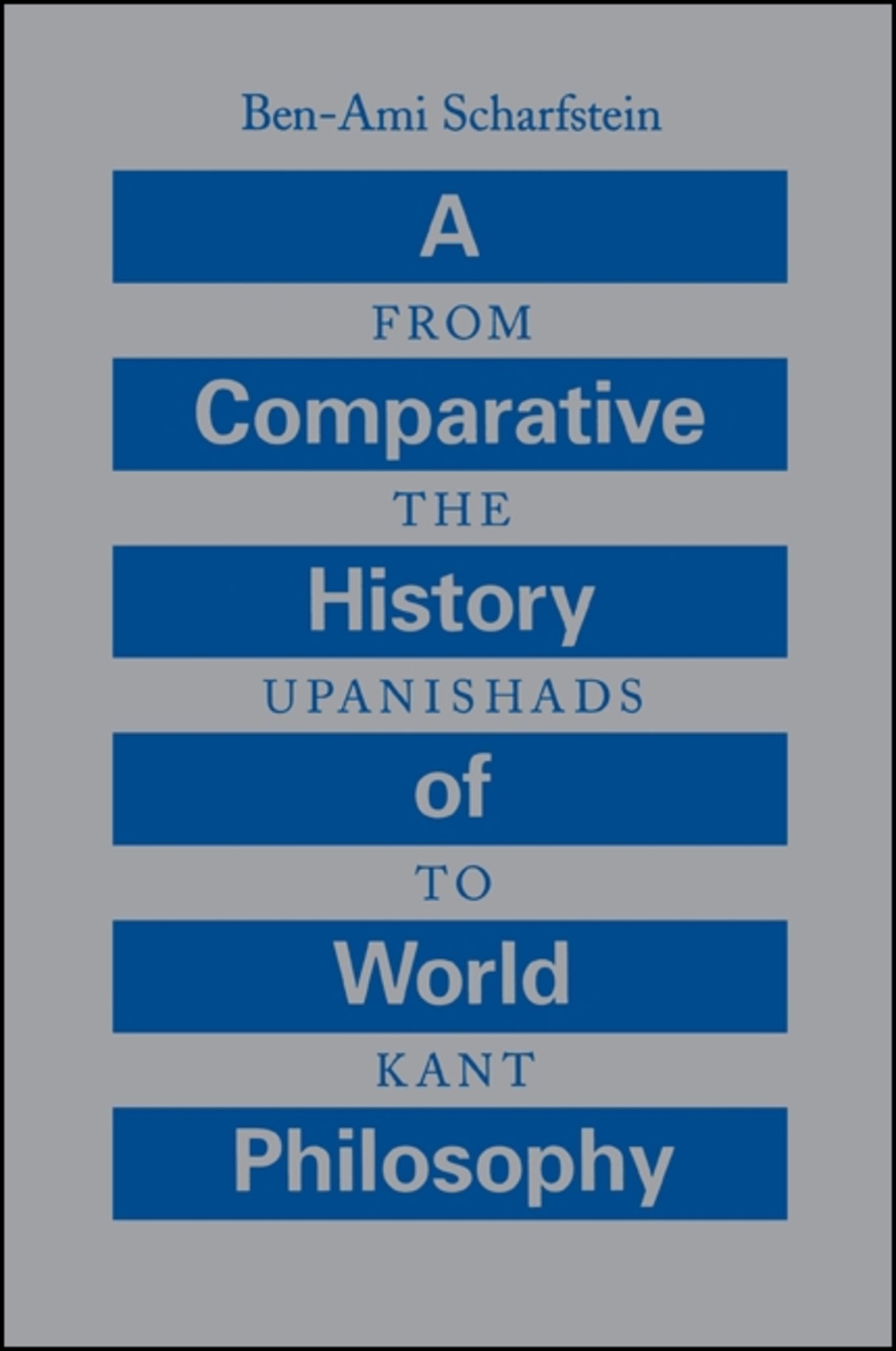We're sorry. An error has occurred
Please cancel or retry.
A Comparative History of World Philosophy

Some error occured while loading the Quick View. Please close the Quick View and try reloading the page.
Couldn't load pickup availability
- Format:
-
19 March 1998

Breaks through the cultural barriers between Western, Indian, and Chinese philosophy and demonstrates that despite considerable differences between these three great philosophical traditions, there are fundamental resemblances in their abstract principles.
A Comparative History of World Philosophy presents a personal yet balanced guide through what the author argues to be the three great philosophical traditions: Chinese, European, and Indian. The book breaks through the cultural barriers between these traditions, proving that despite their considerable differences, fundamental resemblances exist in their abstract principles. Ben-Ami Scharfstein argues that Western students of philosophy will profit considerably if they study Indian and Chinese philosophy from the very beginning, along with their own.
Written with clarity and infused with an engaging narrative voice, this book is organized thematically, presenting in virtually every chapter characteristic views from each tradition that represent similar positions in the core areas of metaphysics and epistemology. At the same time, Scharfstein develops each tradition historically as the chapters unfold. He presents a great variety of philosophical positions fairly, avoiding the relativism and ethnocentrism that could easily plague a comparative presentation of Western and non-Western philosophies.


"Should become a major resource for those engaged in comparative studies." — Library Journal
"Given the current interest in cultural diversity, this book could not have come at a better moment. Anyone teaching philosophy in this country is aware of his or her woeful ignorance of the philosophies of non-Western traditions. This book fills the gap, and provides copious references for further study. In short, the book is important in its own right, and, I suspect, ground-breaking." — Ruth Anna Putnam, Wellesley College
"Few individuals would be able to pull off the project Scharfstein has attempted, and to pull it off while employing such a depth and breadth of resources is even more impressive. He has produced a fresh-feeling text which well communicates the wisdom and balance characteristic of his other work." — David L. Hall, University of Texas at El Paso
"I must say when I first saw the table of contents for this work I thought the task that Professor Scharfstein set for himself of writing a comparative history of world philosophy as variations on common themes was impossible to fulfill, except in the most superficial way. I was, however, pleasantly surprised and delighted to find that his work is global in perspective and content without loss of attention to detail. It is written with great clarity and verve. The student and general reader (as well as his fellow professionals) will certainly share in the excitement of encounter with other traditions that the author himself so nicely exhibits." — Eliot Deutsch, University of Hawaii at Manoa
Preface
Acknowledgments
Chapter 1. The Three Philosophical Traditions
Chapter 2. The Beginnings of Metaphysical Philosophy Uddalaka, Yajnavalkya, Heraclitus, Parmenides
Chapter 3. The Beginnings of Moral Philosophy Confucius/Mencius, the Buddha, Socrates
Chapter 4. Early Logical Relativism, Skepticism, and Absolutism Mahavira, Chuang-tzu, Protagoras, Gorgias, Plato
Chapter 5. Early Rational Synthesis Hsün-tzu, Aristotle
Chapter 6. Early Varieties of Atomism Democritus/Epicurus/Lucretius, "Guatama," and Nameless Buddhists
Chapter 7. Hierarchical Idealism Plotinus/Proclus, Bhartrihari
Chapter 8. Developed Skepticism Sextus Empiricus, Nagarjuna, Jayarashi, Shriharsha
Chapter 9. Religio-Philosophical Synthesis Udayana, Chu Hsi, Avicenna, Maimonides, Aquinas
Chapter 10. Logic-Sensitized, Methodological Metaphysics Gangesha, Descartes, Leibniz
Chapter 11. Immanent-Transcendent Holism Shankara, Spinoza
Chapter 12. Perceptual Analysis, Realistic and Idealistic Asanga/Vasubandhu, Locke, Berkeley, Hume
Chapter 13. Fideistic Neo-Skepticism Dignaga/Dharmakirti, Kant
Afterword
Notes
Bibliography
Note on Author
Index



